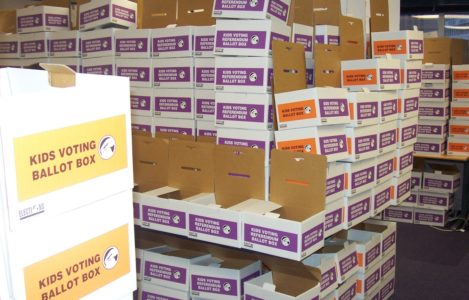
More school students than ever before are running their own mock elections this September through the Electoral Commission’s Kids Voting programme.
Around 100,000 students from 541 schools are already registered for Kids Voting and more schools are expected to sign up before the General Election in September.
That compares with 78,000 students from 556 schools at the last General Election in 2014.
Local primary and intermediate schools taking the lead are Owairoa Primary School, Willowbank School, Our Lady Star of the Sea School, Cockle Bay School, Ormiston Primary, Somerville Intermediate and Howick Intermediate.
Howick College and Edgewater College have also registered their interest.
Alan McIntyre principal Owairoa Primary School says that they have registered for the Kids Voting programme and will be undertaking the mock voting for 554 from Years 3-6 students.
Yolande Franke, principal Howick Intermediate says: “We have registered for Kids Voting. This will become more of a focus early in Term 3.
“I’m hoping to get a young politician along to school to give the students an authentic experience,” she adds saying.
David Ellery, principal Somerville Intermediate confirms they have around 500 students participating this year.
Chief electoral officer, Alicia Wright says: “The high number of early registrations shows schools are keen to give their students an opportunity to learn about the electoral process.”
Kids Voting provides schools with the resources needed for students to run a mock election. Students learn about and vote for real candidates and parties and then compare the results with the outcome of the General Election.
“It’s a practical way to show students how our electoral system works,” says Ms Wright. “It helps them understand the process and get ready to vote when they turn 18.
“Voting is a lifelong habit. The earlier young people start to vote, the more likely they are to keep voting,” says Ms Wright.
“That’s why civic education is so important and the reason why we have developed Kids Voting and curriculum aligned teaching units for schools.”
Kids Voting can be run on a small or large scale, from one to two classes to the whole school.
“It’s great fun for students and teachers, and some schools go all out. Over the years we’ve seen some schools hosting candidate debates for their electorate, and others forming student branches of political parties and developing their own campaign material,” says Ms Wright.
- Schools can sign up for Kids Voting at www.kidsvoting.co.nz.








